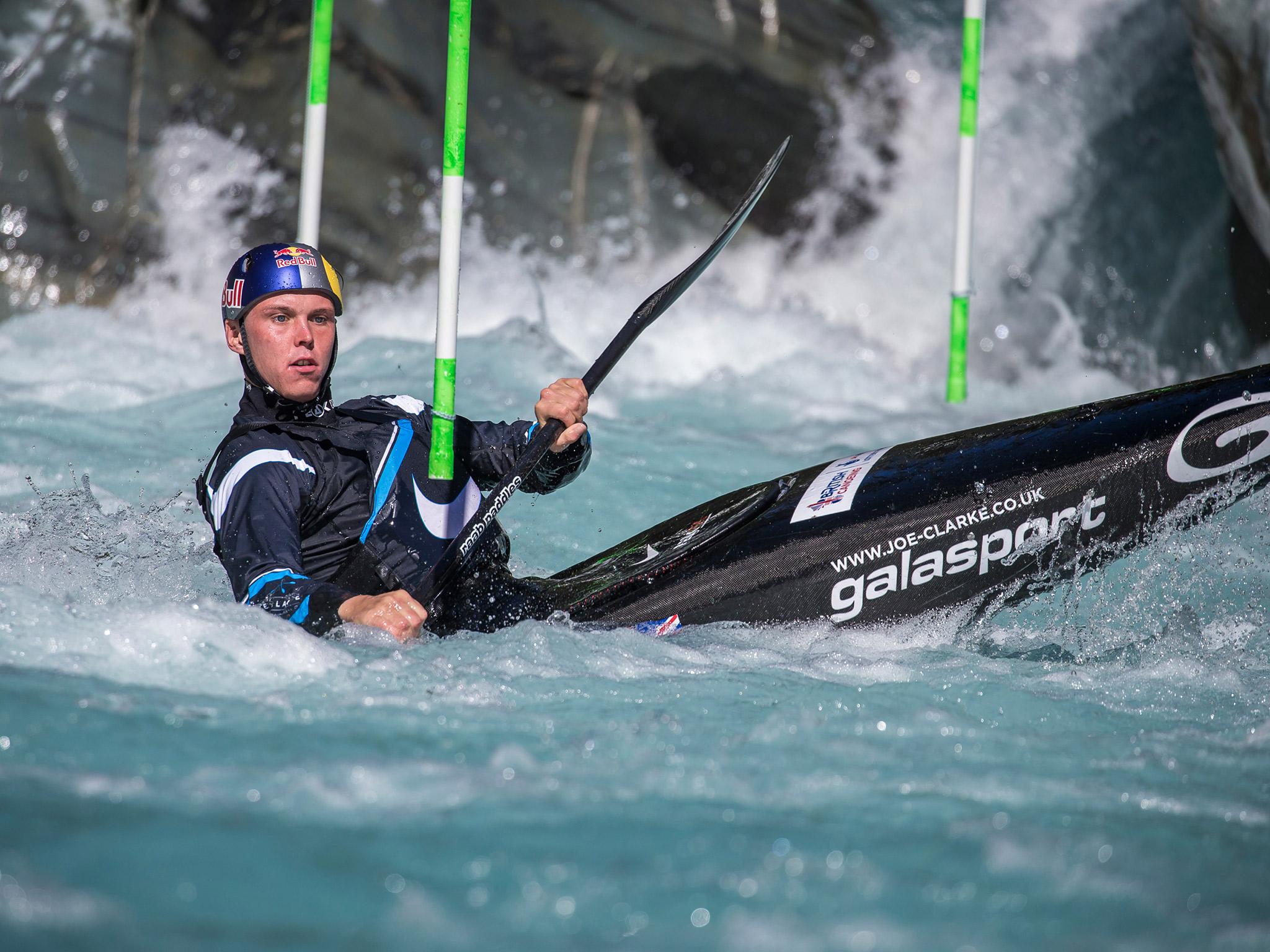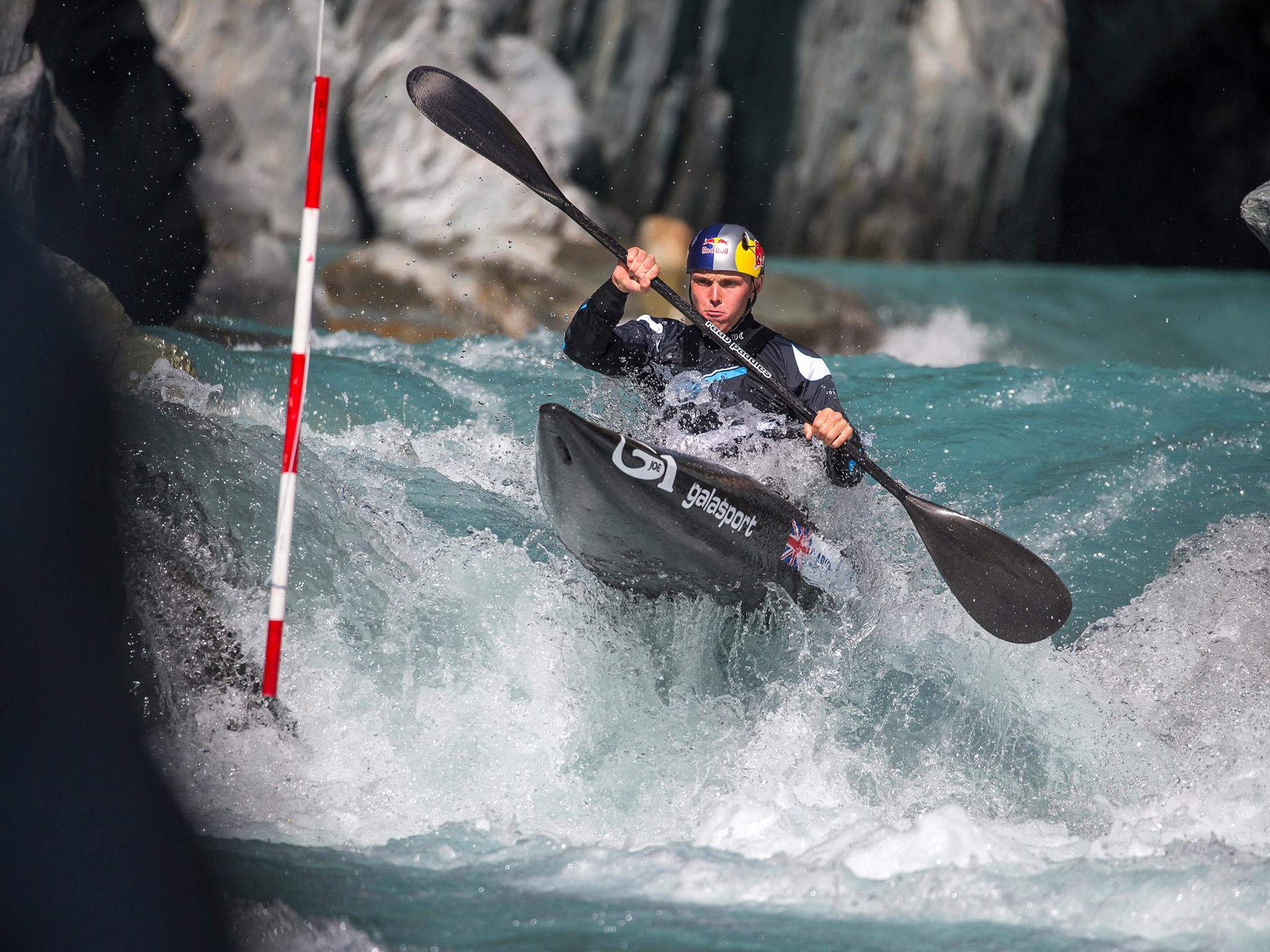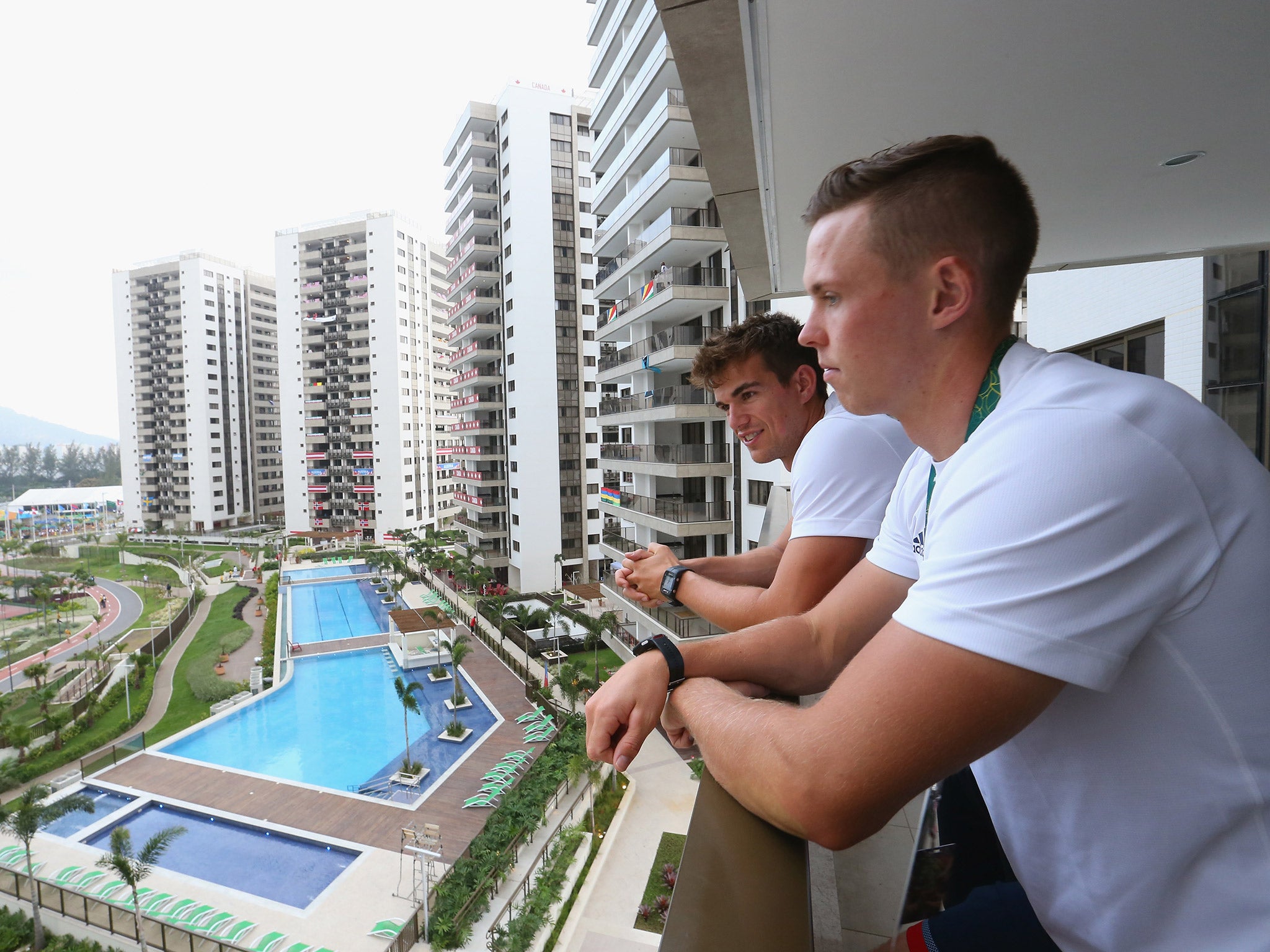Rio 2016: Joe Clarke goes to the extremes in the pursuit of Olympic perfection
The Team GB Kayak Slalom competitor tells Simon Rice about his preparations for Rio 2016

Your support helps us to tell the story
From reproductive rights to climate change to Big Tech, The Independent is on the ground when the story is developing. Whether it's investigating the financials of Elon Musk's pro-Trump PAC or producing our latest documentary, 'The A Word', which shines a light on the American women fighting for reproductive rights, we know how important it is to parse out the facts from the messaging.
At such a critical moment in US history, we need reporters on the ground. Your donation allows us to keep sending journalists to speak to both sides of the story.
The Independent is trusted by Americans across the entire political spectrum. And unlike many other quality news outlets, we choose not to lock Americans out of our reporting and analysis with paywalls. We believe quality journalism should be available to everyone, paid for by those who can afford it.
Your support makes all the difference.The Olympics is about pushing oneself to the extreme. When the Rio de Janeiro Games roll around expect montages celebrating endeavor, strength, the will to never give up and all the rest of it.
But that commitment is not only for the two weeks during which the world will focus it's attention on the city home to the Copacabana. It begins long before. Day in. Day out. Hours every day. And in places far from crowds of thousands and millions watching on TV.
For Joe Clarke, competing in the Kayak Slalom (K1) event for Team GB, it is at the Lee Valley Centre north of London. It is here for the most part that he is practicing again and again, relentlessly testing himself so that he can be sure that for the few minutes of competition at the Games in August he knows he couldn't have given any more.
For Joe the fantastic purpose built facility at Lee Valley which was used for the London Games is not just like a home - it actually is - with the 23-year-old staying in a house the length of a few paddles from the place. It's helpful considering that in the run up to the Olympics he is training six days a week, twice a day, battling against the powerful rushing rapids. But surely going down the same course again and again becomes repetitive, becomes boring even? Joe explains that in Kayak Slalom one run is never like another and preparing for every eventuality should put him in good stead for the Games.
"The course is the same, but every time you go down the water is that tiny bit different. I mean every time - it's never the same. We never do a training session with the same gate configuration - it's always slightly different. You can never get in the comfort zone as it's easy to do the same thing and go 'I'm really good' but then when you turn up at a competition and you've never seen the course that you're going to do it's always something that you think 'it could have been a bit nicer' or 'it wasn't what I would have set'.
"Some guys come and they get exposed but to try and knock that on the head you try and train your weaknesses to become your strengths and just train all different combinations so no matter what comes in competition you just go - 'I can do that'."

Joe has never competed at an Olympics before but has won numerous medals at all levels of international competitions, from Junior through to U23 and senior European and World Championships. He is clearly revered at Lee Valley with youngsters at the centre, some dreaming of paddling a similar journey, chatting excitedly when they learn he is out practicing on the course. But while he may be a big fish at Lee Valley, to help him prepare properly bigger ponds are required. It's taken him to Rio de Janeiro to practice on the Olympic course and Joe can already see the benefits.
"Now I go there I know what hotel I'm staying at, I know what time the train is, I know what the water feels like, I know what temperature to expect and everything has become the norm. We're beginning to know what to expect so come Rio we're just going to be like 'it's just another day at work'."
All competitors are allowed 55 days training on the Olympic course but in a bid to be better prepared than anyone else Joe went even further. Virtually to the other side of the world in fact. Earlier this year the Stone born athlete travelled to New Zealand's Southern Alps. In a twisting canyon up the Whataroa River, where tons of water rush through every second, crashing into boulders and smashing off the jagged sides, Joe and New Zealand kayaker Mike Dawson tested their skills. Using lengths of twine the pair built make-shift gates to create the most extreme slalom course in the world. Joe hopes that testing himself outside his comfort zone could make the difference on the start line in Rio.
"If you can put yourself in the deep end, out of your comfort zone, like I was in New Zealand it's going to be the same on the Olympic Games start line. Nobody ever is going to feel in their comfort zone and be thinking 'this is easy' and if they do say that they're tricking themselves because nobody ever is going to be able to put themselves in front of that many people. Because it's not a sport that is in the spotlight half the time so when it comes to the Games it's so much bigger than anything else we've competed in before - especially for myself. Putting myself out of my comfort zone like I did in New Zealand is trying to emulate how it's going to feel like."

Joe is young and brimming with the enthusiasm that one would hope. He talks about the opening ceremony, the village, the supersized food halls at a rate as ferocious as the rapids he is bidding to master. It's clear that the glamour of Ipanema and the presence of his family who will be in Brazil to support him could be a distraction but he explains that his focus, being trained over so many months, will not wane at the last gate.
"My parents realise when I'm doing my event I'm not going to want to be ferrying here there and everywhere. I'm not going to want to travel too much.
"They know what I expect from them, they know what I'm like - I might be a bit nervous or whatever and they'll try not to mention the race if I don't want to talk about it. They know by now which way I want to steer it and they can tell if I'm nervous or not and what I want from them. It can be difficult sometimes because your parents are like 'I want to see you' but you know I'm here for one thing and that's to perform and they fully respect that. If I didn't see them for the whole two and a half weeks we're out there they'd be cool with that and at the same time if I wanted to see them every day they'd be cool with that."
Expectations around Joe and his fellow Team GB competitors will be high following a very successful London 2012 which yielded four medals in the canoe and kayak disciplines. If it were not for the heroics of those athletes Joe may not have got the funding from the British Olympic Association, propped up by a sponsorship deal with Red Bull, that has enabled him to go on this Olympic journey that started following a kayaking trip with the Scouts at the age of eight. However Joe is not feeling burdened by the past.
"For me it's a completely fresh thing - I'm looking at a blank canvas. I'm 23 - I've got a lot more Olympics left in me. The pressure is on those guys (who are older) which is nice for me as it lets me relax and do my thing. I think that will in turn give me the best performance. When you focus too hard on putting the pressure on yourself that's when people don't actually perform. You've got to bring it back to why you enjoy the sport and when you enjoy the sport you're going to go out and do your best."

So what are Joe's ambitions for the Games?
"To make the final in the men's K1," he says without hesitation. And then after that? "Anybody can win that final is the truth of it. So if I can make that final and then push on for medals."
Whether Joe is successful or not at the 2016 Olympics the images beaming back to the UK will be one of a young man giving his all for a few brief minutes on the rapids of Rio. But, like the majority of athletes competing, it will be just the culmination of so much more.
Join our commenting forum
Join thought-provoking conversations, follow other Independent readers and see their replies
Comments